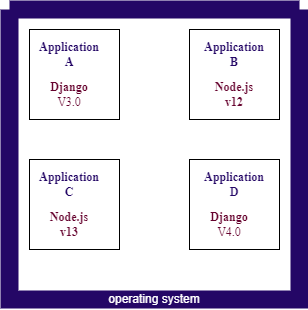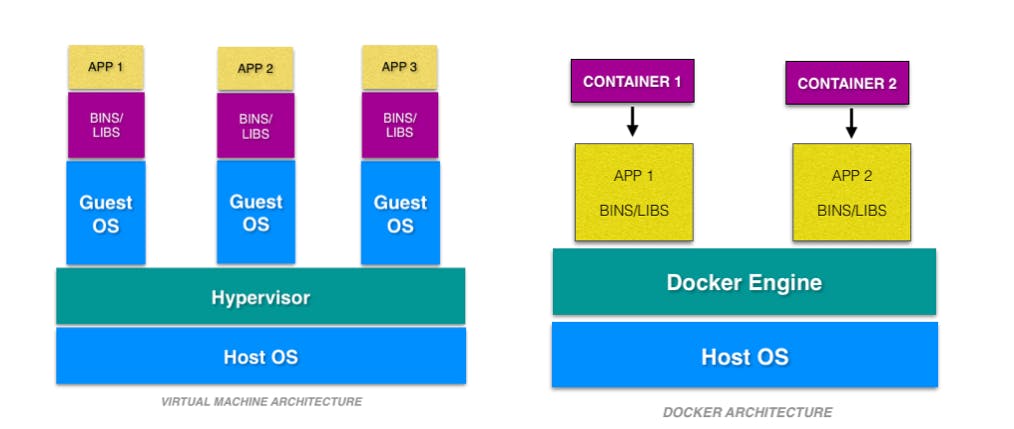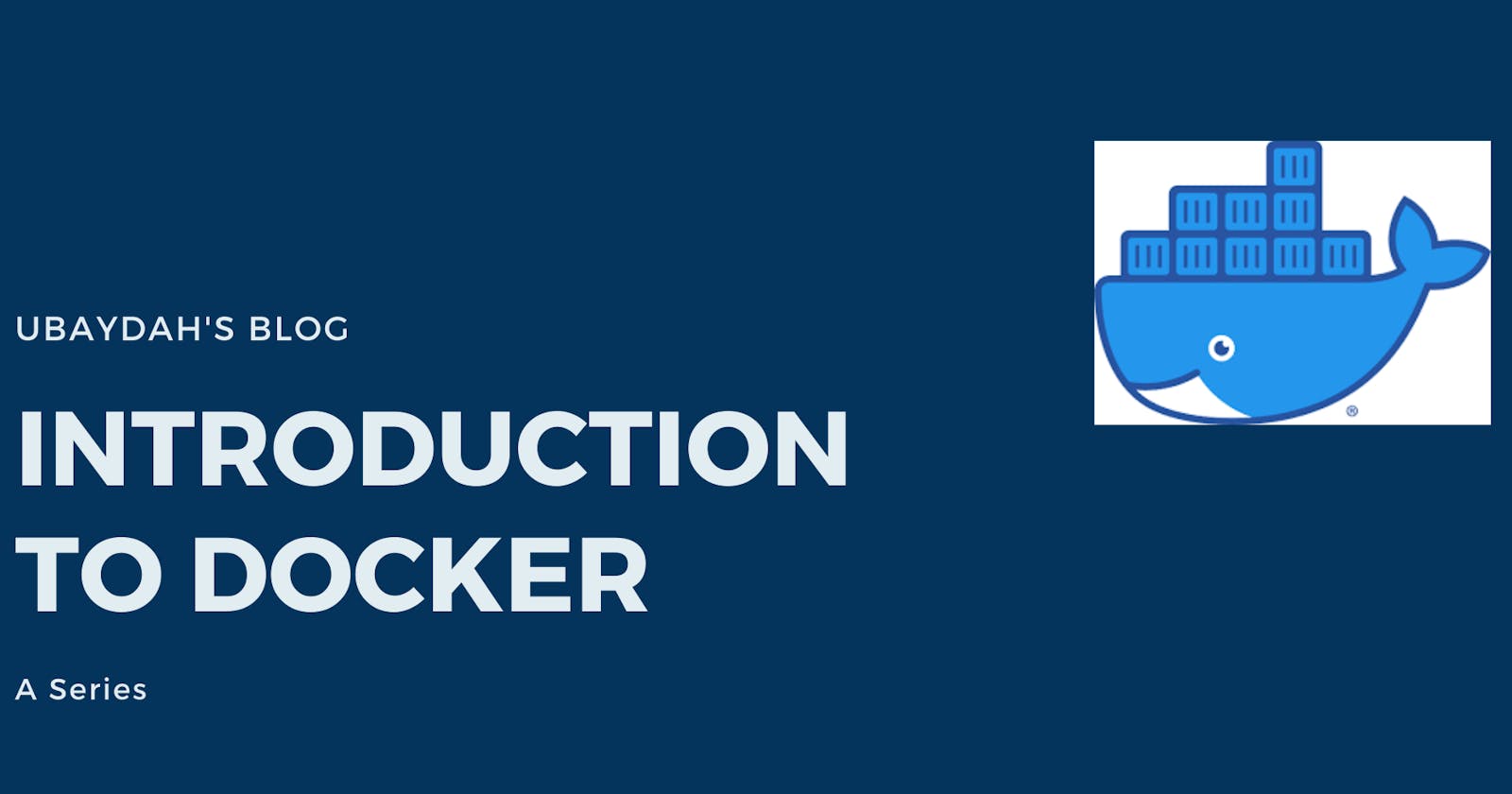Introduction
Hi everyone, I am starting a new series on docker where I will be introducing you to docker, Its installation, terminologies used, and how to dockerize your applications.
Docker is an open-source platform widely used by software companies that facilitates the shipment of applications quickly. It is an alternative to virtual machines which allows you to run different operating systems on one computer. In this article, I will be introducing docker, it difference between a virtual machine, and the benefits of using Docker.
What is Docker?
Imagine running different applications with different frameworks on your operating system, each application contains its own libraries and versions that allow it to run efficiently. With docker, you can create a container for each application to package it and run it in any environment without any conflict in dependencies.

Docker is a tool used to create an isolated environment called containers to build, test, run and ship applications consistently. It makes it easy to deploy, scale and run your applications in any environment.
Difference between Docker and Virtual Machine
A Virtual Machine is a virtual environment created on physical hardware that functions as a separate computing system with its own storage, CPU, memory, etc. In Virtualization, many operating systems are created on a single host machine which leads to unstable performance, long boot process, and inefficiency like the host OS.
Unlike a virtual machine, Docker uses the concept of Containerization which allows the creation of multiple containers for different applications on a single OS. The containers sharing a single OS make them lightweight and boot faster.

Benefits of using docker
It ensures a consistent isolated environment is maintained regardless of where the app is deployed.
It makes it easy to automate your deployment process leading to fast delivery and shipment of codes
It allows scalability as new containers can be quickly created if your application requires them.
It boosts your application performance as containers are more lightweight and quicker to start.
It makes it easy to run multiple versions of the same application without configuration conflicts.
Further Reading
Conclusion
We have learned about docker and, its differences between virtual machines and its benefits in this article. Watch out for my next article in this series where I will introduce you to the docker architecture and terminologies used in docker.
Thanks for reading.
